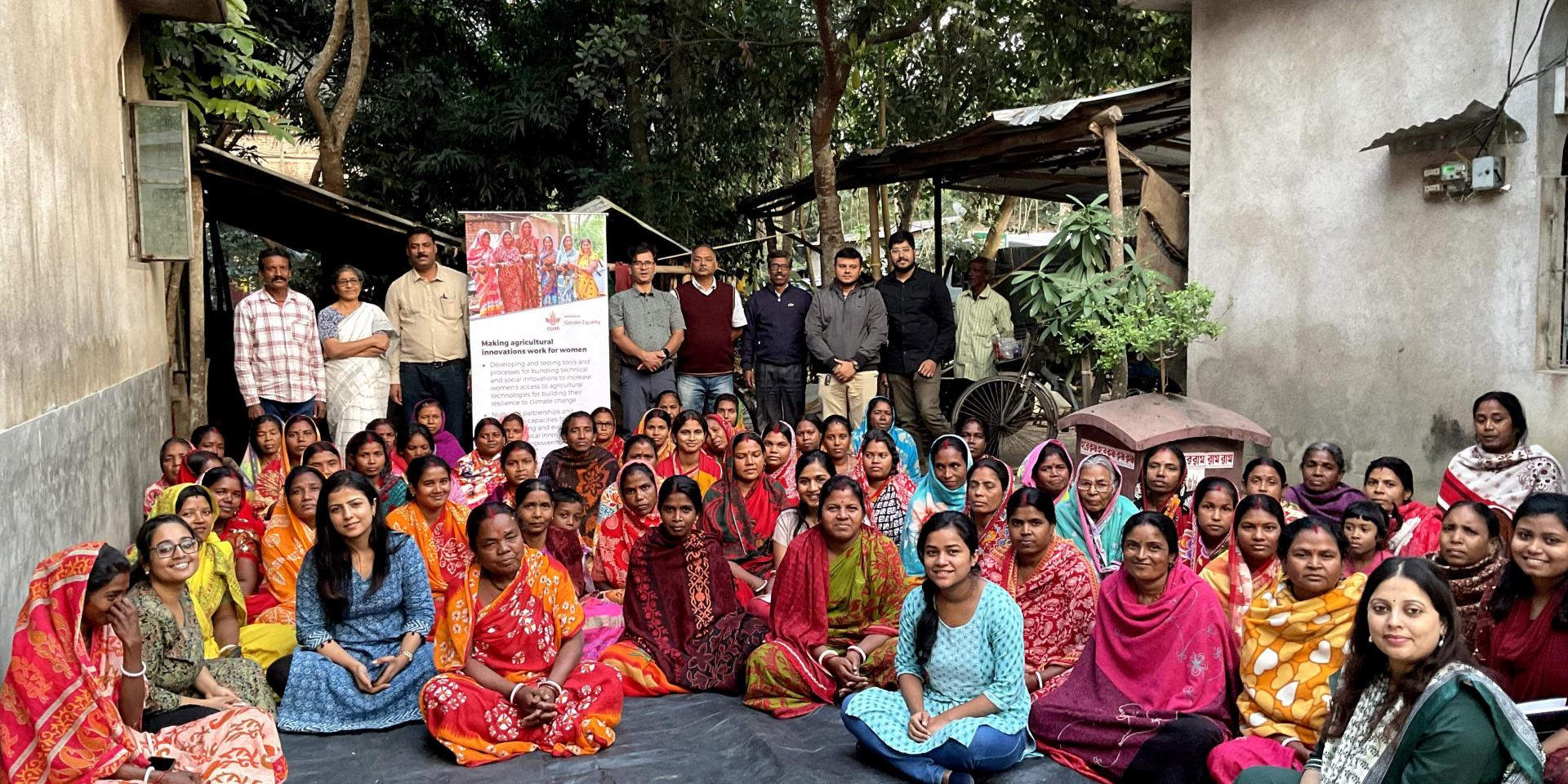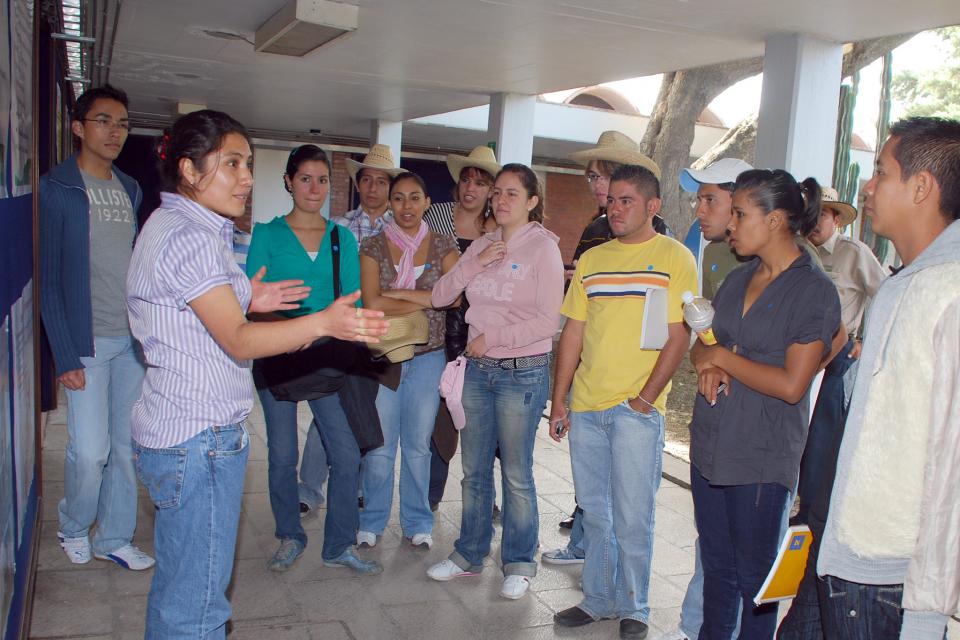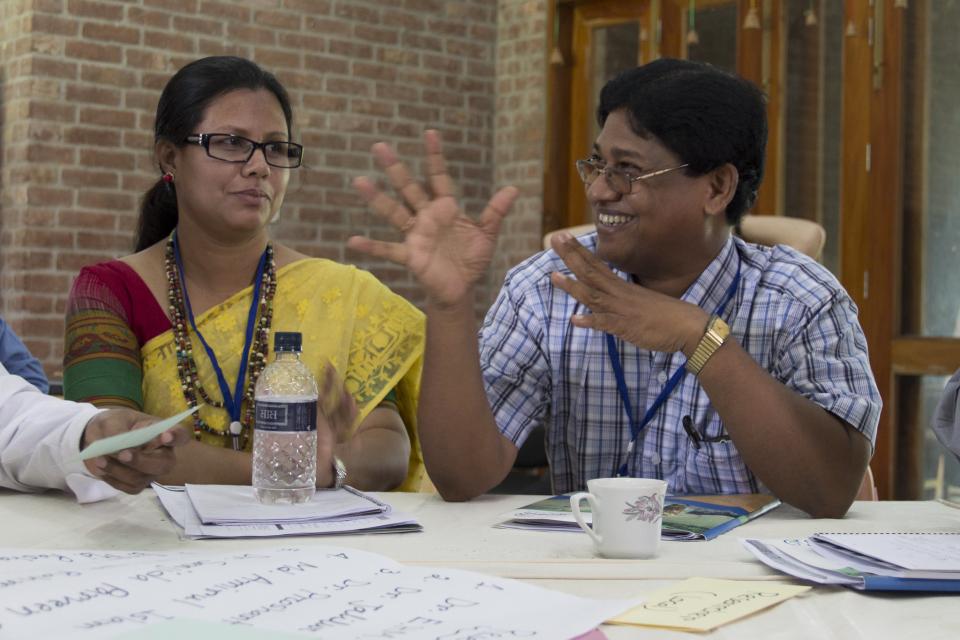Facilitating Multi-Stakeholder Platforms: Unraveling the Challenges and Opportunities
 Photo: Kritika Goel/IRRI
Photo: Kritika Goel/IRRI
- Multi-stakeholder platforms can help solve complex challenges by pooling diverse expertise and experience, but balancing the diverse priorities and conflicting interests of various stakeholders presents its own challenges.
- A specific multi-stakeholder platform itself may not be sustainable, but the habits of collaborating to solve complex challenges, the development processes triggered and resulting outcomes can be, provided there is effective facilitation.
- Inculcating the discipline of periodic self-reflection and learning among stakeholders is crucial for documenting the process, but it can face resistance and requires continuous support and capacity building.
Multi-stakeholder platforms (MSP) have gained significant popularity and are widely accepted for their promising potential in addressing complex economic, social, and environmental issues. They have emerged as popular vehicles for promoting collaboration and innovation in agricultural research for development (AR4D), propelled by the burgeoning interest and investment in collaborative endeavors. MSPs act as hubs for learning and catalytic change, bringing together individuals and organizations with diverse backgrounds and objectives to address pressing challenges. Called by various names such as living labs, social labs, innovation platforms, and learning labs, all of them are united by their aim of nurturing partnerships and fostering sustainability of desired results. Through continuous interaction and collaboration among stakeholders such as farmers, extension officers, policymakers, researchers, NGOs, donors, the private sector, and others, each contributing unique insights, expertise and resources, these platforms aim to enhance the “capacity to innovate” and contribute to the “scaling of innovations.”
While the rising popularity of these platforms has sparked optimism about their potential to drive meaningful development, there is also considerable concern regarding the challenges inherent in their implementation. Often perceived as a panacea for driving change due to their collaborative and inclusive nature, the reality of implementing MSP and nurturing partnerships is far more nuanced. It entails more than just collaboration, demanding a comprehensive understanding of the platform’s ecosystem of actors, networks and varying capacities, and the diverse factors influencing their efficiency and effectiveness for a broader impact.
This blog provides an account of the insights gained while implementing the EMPOWER work package (led by IRRI,) of the CGIAR Initiative on Gender Equality spearheading efforts to develop and test Socio-Technical Innovation Bundles (STIBs) in India through multi-stakeholder platforms called “learning labs”. STIBs aim to enhance the uptake and benefits of technologies and social innovations for women, fostering climate resilience and strengthening gender equality and social inclusion in the agri-food system. The learning labs are aptly named for their dynamic environment that facilitates continuous experimentation, learning, and adaptation in relatively less or no hierarchy. They serve as collaborative spaces where context-specific, climate-smart, and gender-responsive STIBs are co-designed and implemented.


